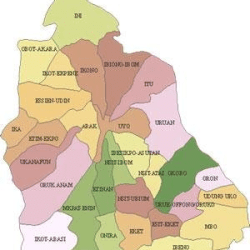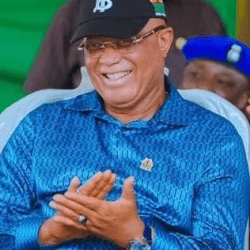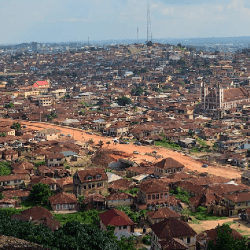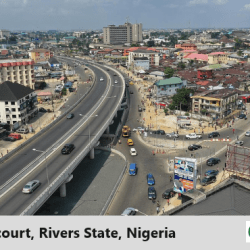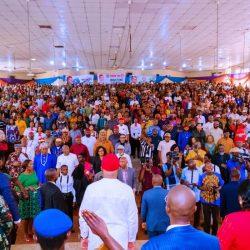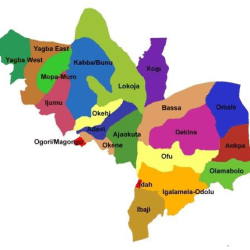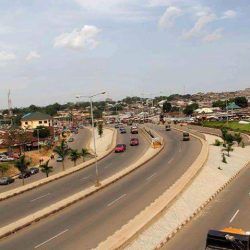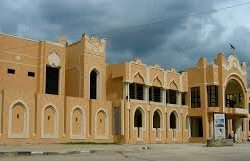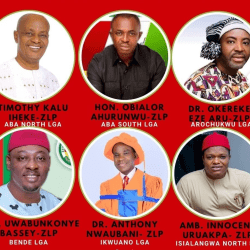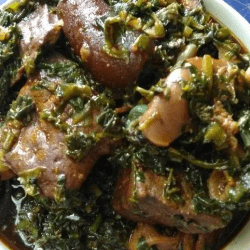The Chairmen of Local Government Area (LGA) councils in Akwa Ibom State, that emerged from the 2024 elections, and their respective LGAs are:
1 Aniefiok Isaac Nkom …. Ikot Ekpene
2 Sun Festus …. Oruk Anam
3 IJtibe Thomas Nwoko …. Ika
4 Akaninyene Tom Ikott …. Eket
5 Ime Effiong Charies …. Abak
6 Inibehe Monda Umah …. Ini
7 Otobong Okon Essien …. Ikono
8 Okon Asukwo Enwerne …. Oron
9 G e Okon Henshaw …. Okobo
10 Prince Uyo Ukpanah …. Ukanatun
11 Uwemedimo Udo …. Uyo
12 Usoro Ntiedo Effio …. Esssien Udim
13 Ototmg SAaron …. Nsit Ibom
14 Simon Damic Akpan …. Obot Akara
15 Irne Williamson Essien …. Ikot Abasi
16 EcfldiongJoseph Inyang …. Ibesikpo Asutan
17 Iniobo Ekpenyong …. Uruan
18 Uduak Ikott …. Esit Eket
19 Alfred Akpan Charles …. Nsit Ubium
20 Gideon L. Uwa …. Etim Ekpo
21 Emmanuel John Inya …. Mkpat Enin
22 Uban Willson Nkutt …. Itu
23 G Ekah Etftorl …. Ibeno
24 Uno Etim Uno …. Urue Offön Oruko
25 Anthon Effio …. Nsit Atai
26 Sun Okon Etim …. Mbo
27 Samuel Nte fah …. Eastern Obolo
28 Godwin Okponun …. Udung Llko
29 Uko Friday Umoh …. Etinan
30 Kufre Okon IJmoren …. Onna
31 Asuakak Udo Umoh …. Ibiono Ibom
All the 31 LG Chairmen won elections on the platform of PDP (Peoples Democratic Party).

In preparation for the October 2024 local government elections, the Peoples Democratic Party (PDP) in Akwa Ibom State has nominated 31 chairmanship and 368 councillorship candidates through a peaceful primary process.
Governor Umo Eno praised the peaceful conduct of the primaries and credited it to the prevailing stability and unity in Akwa Ibom State.

He also encouraged the nominated candidates to uphold the principles of public service and contribute to the community-driven goals of his administration’s ARISE Agenda. development.
Akwa Ibom State comprises 31 Local Government Areas, namely:
- Abak
- Eastern Obolo
- Eket
- Esit Eket
- Essien Udim
- Etim Ekpo
- Etinan
- Ibeno
- Ibesikpo Asutan
- Ibiono Ibom
- Ika
- Ikono
- Ikot Abasi
- Ikot Ekpene
- Ini
- Itu
- Mbo
- Mkpat Enin
- Nsit Atai
- Nsit Ibom
- Nsit Ubium
- Obot Akara
- Okobo
- Onna
- Oron
- Oruk Anam
- Udung Uko
- Ukanafun
- Uruan
- Urue-Offong/Oruko
- Uyo
The State is located in the South-South geopolitical zone of Nigeria, bordered by Cross River, Rivers, Abia, Ebonyi states and the Atlantic Ocean.



It was created in 1987 from Cross River State and has 31 local government areas.
It has a population of about 5.5 million people as of 2016 and is the 15th most populous state in Nigeria.
The state is rich in natural resources such as oil, gas, clay, limestone, salt, and coal.
Akwa Ibom is also known for its cultural diversity and language similarities. There are over 20 languages spoken in Akwa Ibom, but the major ones are Ibibio, Anaang, Efik, and Igbo.
Akwa Ibom takes its name from the Qua Iboe River which bisects Akwa Ibom before flowing into the Bight of Bonny.
Akwa Ibom has a tropical climate with two seasons: rainy and dry. The rainy season lasts from April to October and the dry season from November to March.
It is home to various tourist attractions such as the Ibom Plaza, the Ibeno Beach, the Stubb’s Creek Forest Reserve, the National Museum of Colonial History, and the Meridien Akwa Ibom golf course.
Akwa Ibom has a vibrant culture and celebrates various festivals such as the New Yam Festival, the Ekpe Masquerade Festival, the Leboku Festival, and the Christmas Carols Festival.
Located in the South Eastern part of the country, Akwa Ibom is a key member of Nigeria’s South South Zone, rich in crude oil, natural gas and a diversity of agricultural produce.
Over 5000 expatriates working for various organisations like Exxon Mobil, Shell, Chevron, Elf, the Aluminum Smelter Company, ALSCON, Forrestal, Reynold International and the University of Uyo have found a home here.

Capital City: Uyo
Other Major Cities: Eket, Ikot Ekpene, Abak, Ikot Abasi and Oron.
Ethnic Groups: Multi-ethnic: Ibibio, Anang, Oron, Eket, Ibeno, Mbo
Location: Latitude 4o 32’ and 5o53’ North and Longitude 7o25’ and 8o25 East.
Area: 8,412 square kilometers
Climate: Tropical climate marked by two distinct seasons; the dry season (November – March) and the wet season (April – October). The wet season is usually interrupted by a short dry spell in August.
Mean annual rainfall is 2,200mm in the north of the state and 3,500mm in the south of the state.
Sunshine is between 1,400 to 1,500 hours per year. Average temperature range from 23oC to 31oC.
Vegetation: Three easily distinguishable vegetation; the saline water swamp forest, the fresh water swamp forest and the rainforest.
Mineral Resources: Crude oil, natural gas, limestone, gold, salt, coal, silver nitrate, glass sand, kaolin.
The major industrial crop is the oil palm tree. The Akwa Ibom has the densest groves of oil palm in Nigeria. The Akwa Palm Industries PLC was set up in 1991 to harness the full potential of this crop.
The production of crude palm oil will allow for downstream industries which can refine the oil into vegetable oil, soaps, margarine, glycerin, candles, detergents and numerous other products. The kernel oil is used for the manufacture of high quality toilet soap. Bye product from the oil palm industries are used for the production of livestock feeds.



